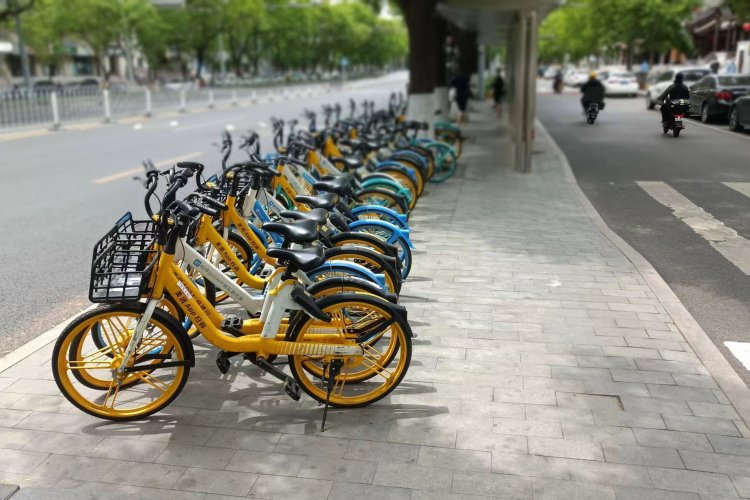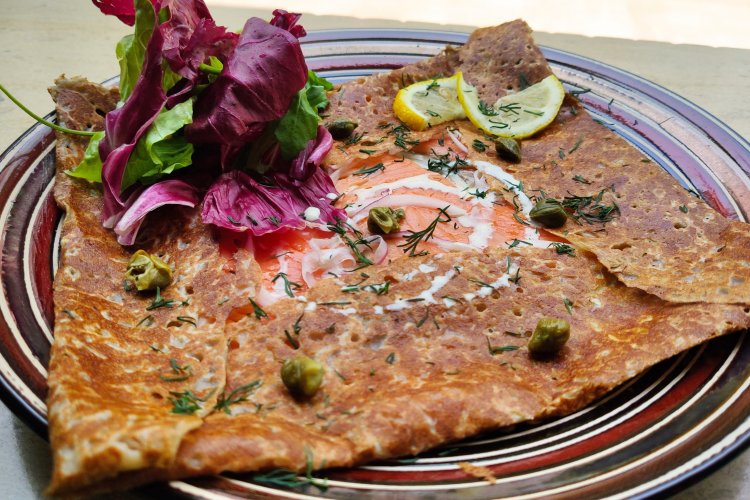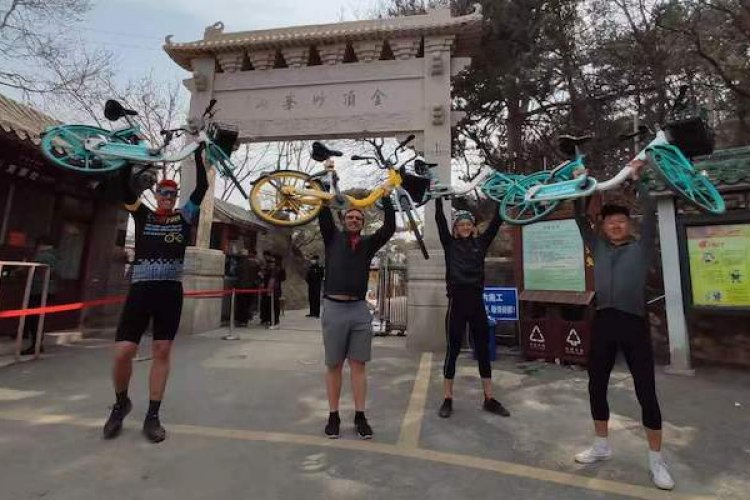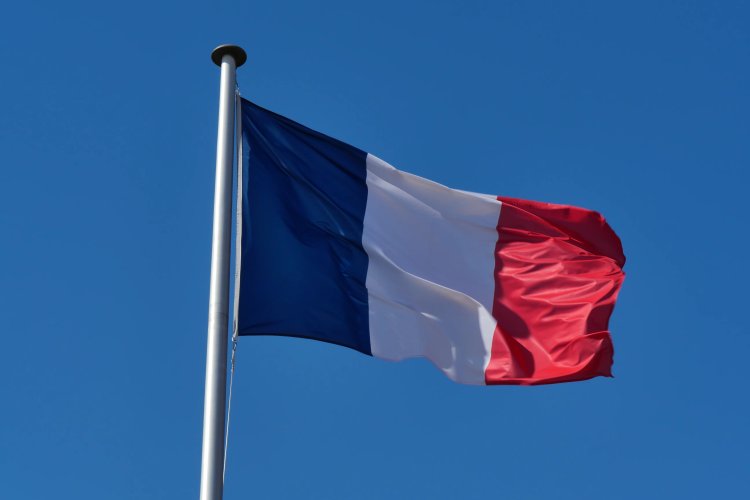"I Don't Let My Fear Slow Me Down": Aurélie Gonet on Riding More Than 7,000km to Beijing
At just 33 years old, French travel enthusiast Aurélie Gonet has achieved more than most people attempt in a lifetime. Since leaving her hometown of Dijon, France on Mar 3 this year, she has ridden over 7,000km by bicycle and traversed 16 different countries. Carrying all of her belongings on her bike, and alternating between camping, and staying in local's homes, and hostels, she also managed to raise thousands of euros for a Dijon-based lung cancer research center throughout her journey.
Yet arriving in her destination city of Beijing was still not the end of the road for Gonet. Less than a week after entering the capital, she took off from the starting line of the 2019 Beijing Marathon, going on to complete her fourth marathon.
Now that she finally has some downtime on her hands, Gonet will be the honored guest at a special fundraising event and meet and greet next Monday, Nov 11 at The Great Outdoors. We sat down to delve into what motivated her during her trip, and where she hopes her adventure takes her next.
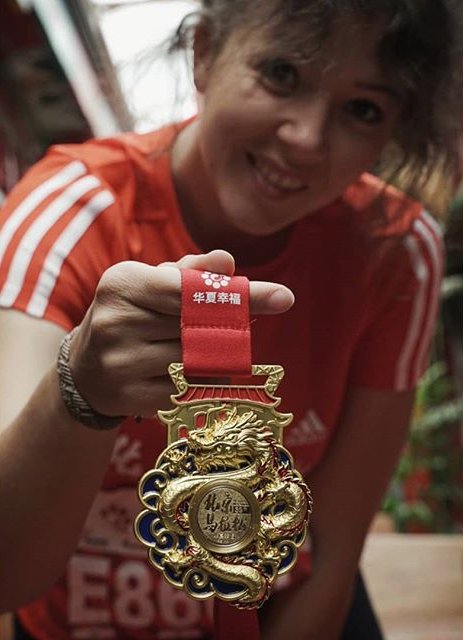
What first motivated you to undertake this journey?
I lost my mother to lung cancer in April of 2018. Actually, the trip was in the works before she died, and I had already completed a few long-distance rides: London to Edinburgh, and a round-trip of Iceland. But after she passed, nothing made any sense, and the trip felt completely pointless. Yet my mother had already given me her blessing to undertake the trip, and when I realized that I could raise funds for cancer research for Le Centre de lutte contre le cancer Georges-François Leclerc (CGFL) during my ride, it gave me motivation. In fact, the support of the community and the funds that were being raised really carried me through this journey. I also knew that I didn't want to pass the first year without her, just doing normal quotidian things. I wanted to be far away, and I believe that it would have been much harder if I was at home.
You say that you long dreamed of riding to China, why is that?
When I was 18 or so, I just saw a map one day, the whole world spread out. I just kept looking and looking and saw there was a straight line between Dijon and Beijing. And I said, oh hey, that'd be a nice ride!
Which countries did you cross during your trip?
France, Switzerland, Germany, Austria, Slovakia, Hungary, Croatia, Serbia, Bulgaria, Turkey, Georgia, Azerbaijan, Kazakhstan, Uzbekistan, Tajikistan, and China. Thanks to the trip, I re-learned all my geography lessons! For example, take Uzbekistan, I don't know if I'd ever heard of it before, let alone find it on a map. But once you've covered these countries on a bike, you know exactly where they are!
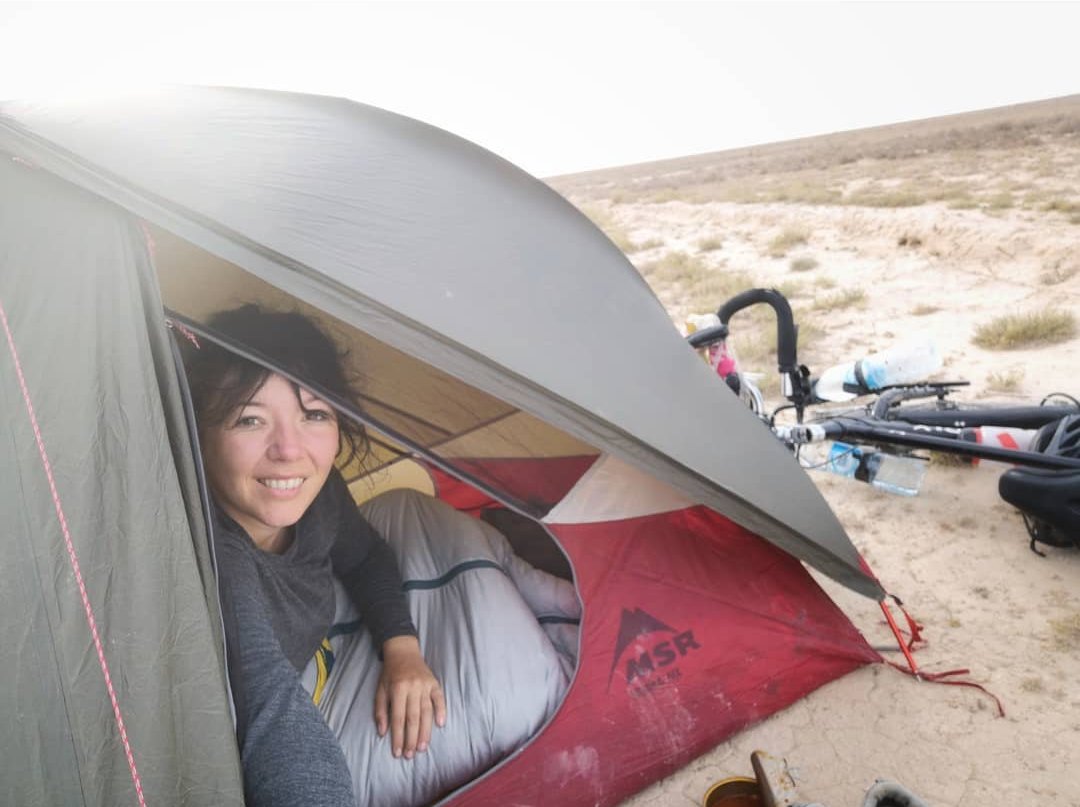
Which place most surprised you or confounded your expectations?
Uzbekistan really left a big impression on me. Originally I wasn't going to go, but I was advised to go to see Samarkand, a city that is considered a treasure of Islamic art, with really monumental architecture. It's a really interesting country. I arrived by Kazakstan and I had to traverse the Kyzylzkoum Desert, which is 400km wide, with a straight road of 320km running through it. I thought it'd be a good psychological challenge!
It was a magical experience. When you camp in the desert, everybody can see you, so you just have to accept it. When you wake up at night, there is no light pollution so the sky is just incredible. There is such a silence... there is no sound at all, to such a degree that your ears strain to hear something. I adored this experience. There were a few villages along the way, but I had enough to keep me going for four days, including 15L of water, which is 15kg extra to carry!
In the north of Uzbekistan, I visited the Aral Sea. In fact, it doesn't exist anymore. The sea was fed by two rivers, which were diverted by the Soviets in order to produce more cotton. Now, it's a huge desert, an ecological catastrophe. There is a boat cemetery there, which shows how rich and populated the area was, and now there is absolutely nothing. We all hear about these ecological problems on the television, but when you walk in a desert that used to be a sea, and you say to yourself that you should be completely underwater with the fish... you really understand.
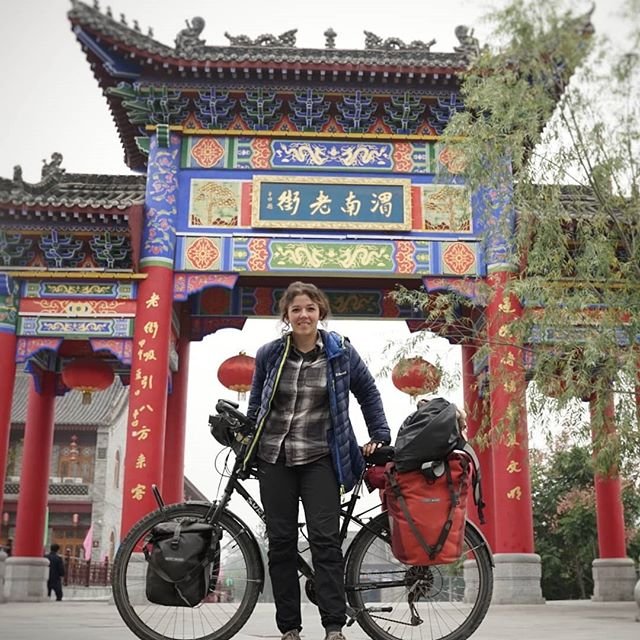
You describe yourself as "unsporty," why is that?
I was always told that I wasn't sporty, and for a long time, I believed it. I was also with somebody for a long time who was very sporty, and very disciplined and had very specific ideas about how to prepare for a sports challenge: "You have to train, you have to prepare for years." Yet I always believed that if I wanted to try something, I could just try it in my own way, and see how it went. For example, I eventually signed up for my first marathon and did the best I could. During my long rides, I just wake up in the morning and go as far as I like. I don't book in advance, I don't really have any plan. I just go as far as I want.
Did you ever feel afraid or in danger?
Before leaving, I think I imagined all the worst things that could ever happen to me, like sexual aggression, even ending up in a plastic bag cut into little pieces! [laughs]. I was really aware of all the risks, having an accident, ending up handicapped, or in hospital. I was pretty mentally prepared for bad things to happen so whenever something bad did happen during the trip, it was never as bad as what I had imagined. I was always able to keep some perspective.
The worst day of the trip, I was in an accident with a truck, which cut me off (on a completely straight, empty road) and knocked me right off my bike. Three men from the village took me to the hospital, and on the way back, one of them began to touch me in the back; my hair, my neck, even my leg which had been hurt in the crash. After first trying to stop him "kindly," I lost my temper at the guy and the driver turned around. For a second I asked myself "is he with me, or is against me?" but he gave the guy an earful too. So thankfully I was ok, but I had also been ready to jump out of the van, do whatever I needed to do. Throughout the trip, I was vigilant.
You have to learn how to live with fear, otherwise, it slows you down. Before leaving I said to myself "I will face my fears" for example of sleeping alone at night in my tent, of getting in a car with people I don't know. I didn't want my fear to slow me down.
You were visibly emotional when you got your Beijing Marathon medal. Why does this medal mean so much to you?
For the first time in my life, I felt really, truly proud of myself. I completed absolutely everything that I set out to do. I did it right to the end. So many people had discouraged me from undertaking this trip and told me that I couldn't do it, but I did it. I only regret that my mother isn't able to see what I've achieved.
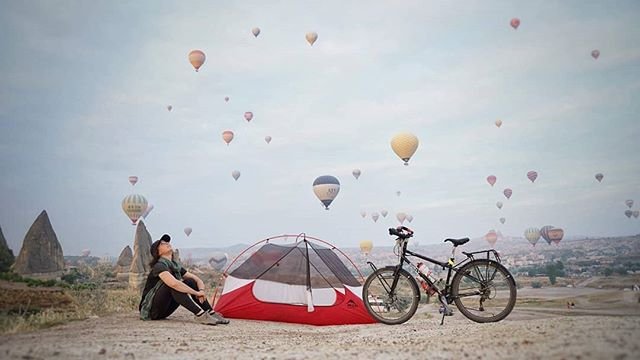
You return to France next week, what's next?
I never want to lose this feeling that I have now: that every moment is precious, and you have to live without regrets. I want to continue having adventures and following my dreams and goals. When I get back home I'll go back to my job in communications, but I have always loved writing and for a while now I've wanted to launch a side business as a professional biographer – I love hearing ordinary people's stories, and I want to share them too.
Meet Gonet this Monday night, at a special meet and greet fundraising event at The Great Outdoors from 7pm. The event will include a bilingual French-English panel discussion and an open Q&A session with audience members. All proceeds will go to Le Centre de lutte contre le cancer Georges-François Leclerc. Click here for full details.
READ: Get a Grip on Rock Climbing in the Capital
Images courtesy of Aurélie Gonet, Direction, l'Horizon



